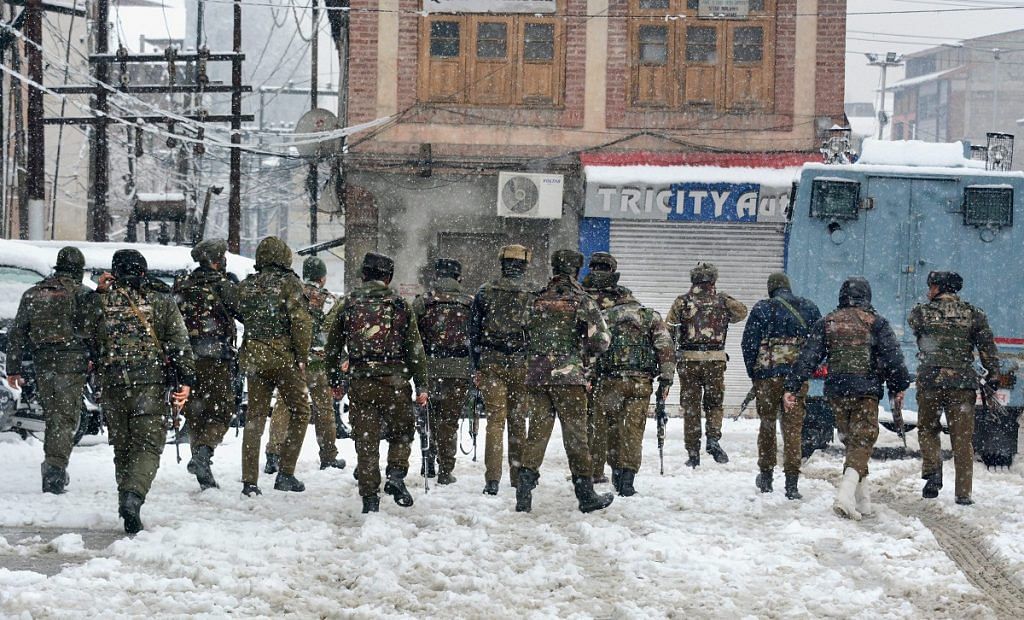Sardar Patel had urged Nehru after Independence to adopt a hard-line policy towards those who sought Pakistan’s assistance in shaping the political landscape in Kashmir.
Reflecting on his masterly plan to infiltrate tribals and jihadis into the state of Jammu and Kashmir in the autumn of 1947 that almost succeeded, in an operational pamphlet titled ‘How to Solve the Kashmir Problem’, Major General Akbar Khan argued:
“The terrain inside Kashmir was ideally suited for guerilla and sabotage action — In addition, our frontier tribesmen have for centuries found India an attractive hunting ground.”
Fast forward to a few decades later, and Akbar Khan was all but forgotten in the 1980s in the wake of a powerful discourse that attributed the origins of Pakistan’s proxy war against India to President Zia-ul-Haq as part of a wider Islamist jihad. This is a flawed discourse that ignores a systematic and sustained subversion strategy that has changed colours over the years like a chameleon, but not its basic form.
While ‘Operation Gulmarg’, the tribal-led and Pakistan army-orchestrated infiltration operation in 1947-48 was poorly executed and snuffed out by a spirited and professional Indian military response before it could expand into an insurrection, its two-tier script played out fully during the year-long conflict. When the first tier of the planned insurrection failed, the second tier was operationalised with the Pakistan army joining battle to support the armed raiders. However, the main objective of the operation was to further Jinnah’s two-nation political theory that looked at religion as the basis for the division; and consequently, the argument was that Kashmir, with a predominantly Muslim population, ought to have rightfully joined Pakistan.
Nehru and Sardar Patel, on the other hand, were determined to showcase Jammu and Kashmir as a successful example of Indian secularism wherein a region with a liberal Muslim majority was an integral part of the large multi-religious, multi-ethnic and multi-lingual mosaic that India was determined to be.
1965 & 1971
Before looking at Pakistan’s inability to wrest Kashmir militarily in 1965 and its post-1965 Islamic revival, it would be unfair to say that Kashmir was peaceful and devoid of any subterranean political intrigue and religious fissures and cracks. While Sheikh Abdullah and his love-hate relationship with Nehru dominated the political landscape, his association with separatists sent alarm bells ringing within India’s intelligence community and attracted the ire of India’s home minister, Sardar Patel.
Patel urged Nehru to adopt a consistent but hard-line policy towards those who either propagated the idea of ‘azadi’ or sought Pakistan’s assistance in shaping the political landscape in Kashmir. Unfortunately, Patel’s death in December 1950 left India’s Kashmir policy entirely in the hands of Nehru, and his rather altruistic obsession with seeing peace return to his home state at any cost meant that he would be prepared to turn a blind eye to fissiparous cracks emerging within Kashmir’s polity.
Praveen Swami, one of India’s most persistent Pakistan-centric analysts has, over the years, made some very astute observations about the slow deterioration of the security situation in J&K in the 1950s and 1960s, and introduced the term ‘informal war’, which he says had a greater impact on India-Pakistan engagement than both the 1947 and 1965 wars.
He has often written that Jammu and Kashmir was thus a zone of continued warfare – low-grade warfare, it is true, but warfare nonetheless and what we term loftily today as proxy war.
His book, ‘India Pakistan and the Secret Jihad’, is a must read for policymakers, military leaders and students of contemporary Indian history who want to revisit the origins of what has been a chameleon strategy of subverting the Indian state.
The aftermath of the 1965 war with Pakistan saw a surprisingly alert and resilient Indian intelligence network in J&K smash the remnants of the Pakistan-sponsored covert cells after the 1965 war. Unfortunately, neither did this extinguish the embers of Kashmiri separatism, nor did it wean Sheikh Abdullah away from his ambivalent approach towards the Kashmir problem and his struggle to regain the reins of leadership in Kashmir.
Surendra Nath, who served as governor of Punjab during its troubled era in the late 1980s and early 1990s, and is credited with being a major player in restoring peace in the state, cut his teeth in understanding internal conflict in J&K in the 1960s as a police officer. Had his early reports on J&K been heeded by Delhi, first by PM Shastri, and then by PM Indira Gandhi, Pakistan’s covert war strategy may well have floundered in its infant years after the 1965 war.
The strategic consequences of Indira Gandhi’s magnanimity of not forcing a resolution on Kashmir during the Simla Agreement of 1972 was a blunder that that would haunt India for decades to come. In its moment of triumph and, while preparing for the summit, India had neither looked ahead at Kashmir, nor reflected on how warfare may change in the years ahead.
The Indian military just disappeared during the post-war and pre-Simla summit discussions – India has paid the price for this strategic oversight. By not forcing a ‘cartographic and non-interference in India’s internal affairs’ commitment from Pakistan over Kashmir, it left a window open for the continuous re-evaluation of strategies by the Pakistan military, its intelligence agencies and jihadi forces as they worked on a ‘master plan’ to avenge the humiliation of 1971 through a constantly evolving ‘covert war’ strategy that sought to gradually incite the people of Kashmir to rise against the Indian state.
Arjun Subramaniam is a retired Air Vice-Marshal from the IAF and is currently a Visiting Fellow at Oxford University.
This is part II of the author’s two-part series on the origins of Pakistan’s proxy war in J&K. Read part I here.
